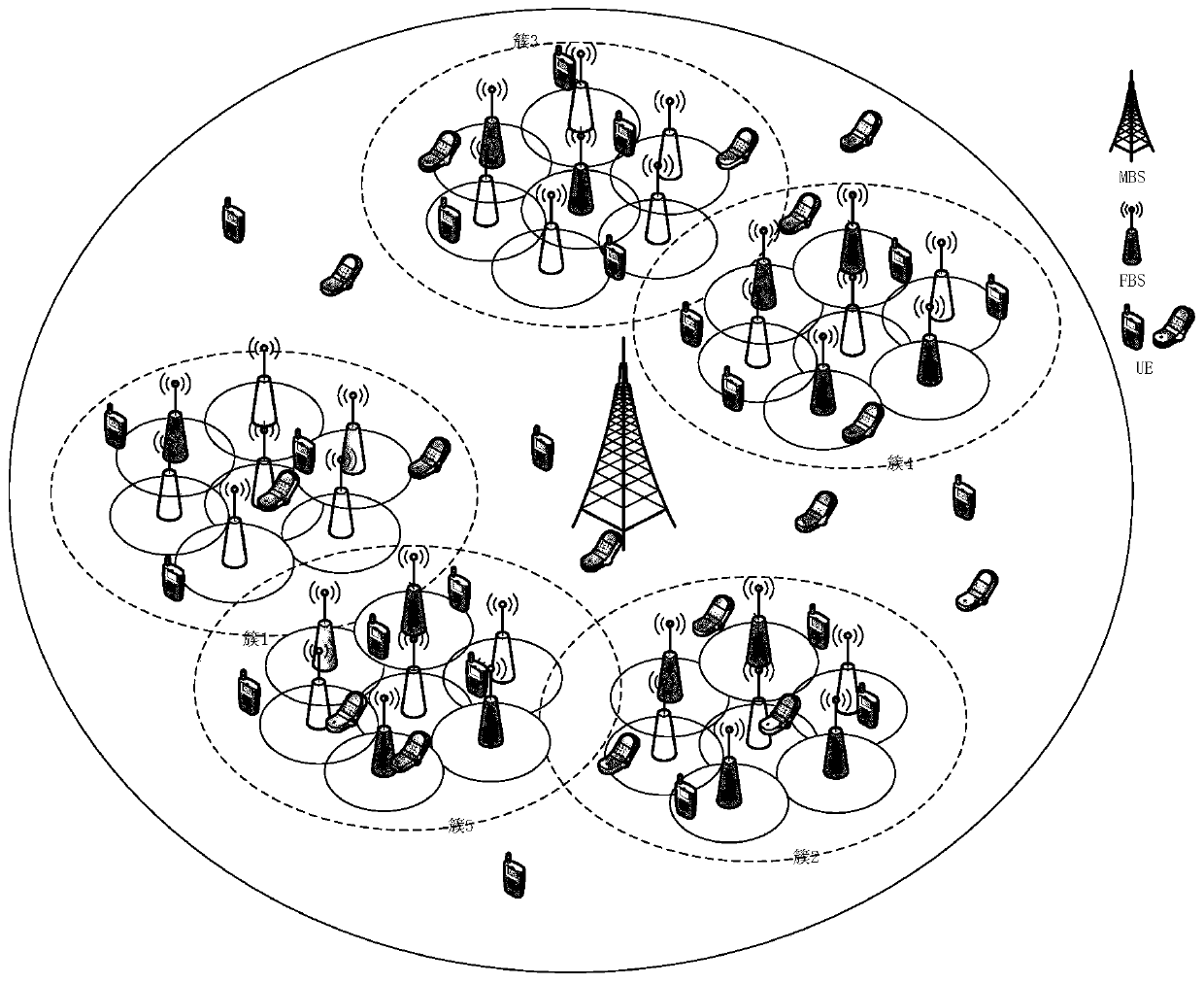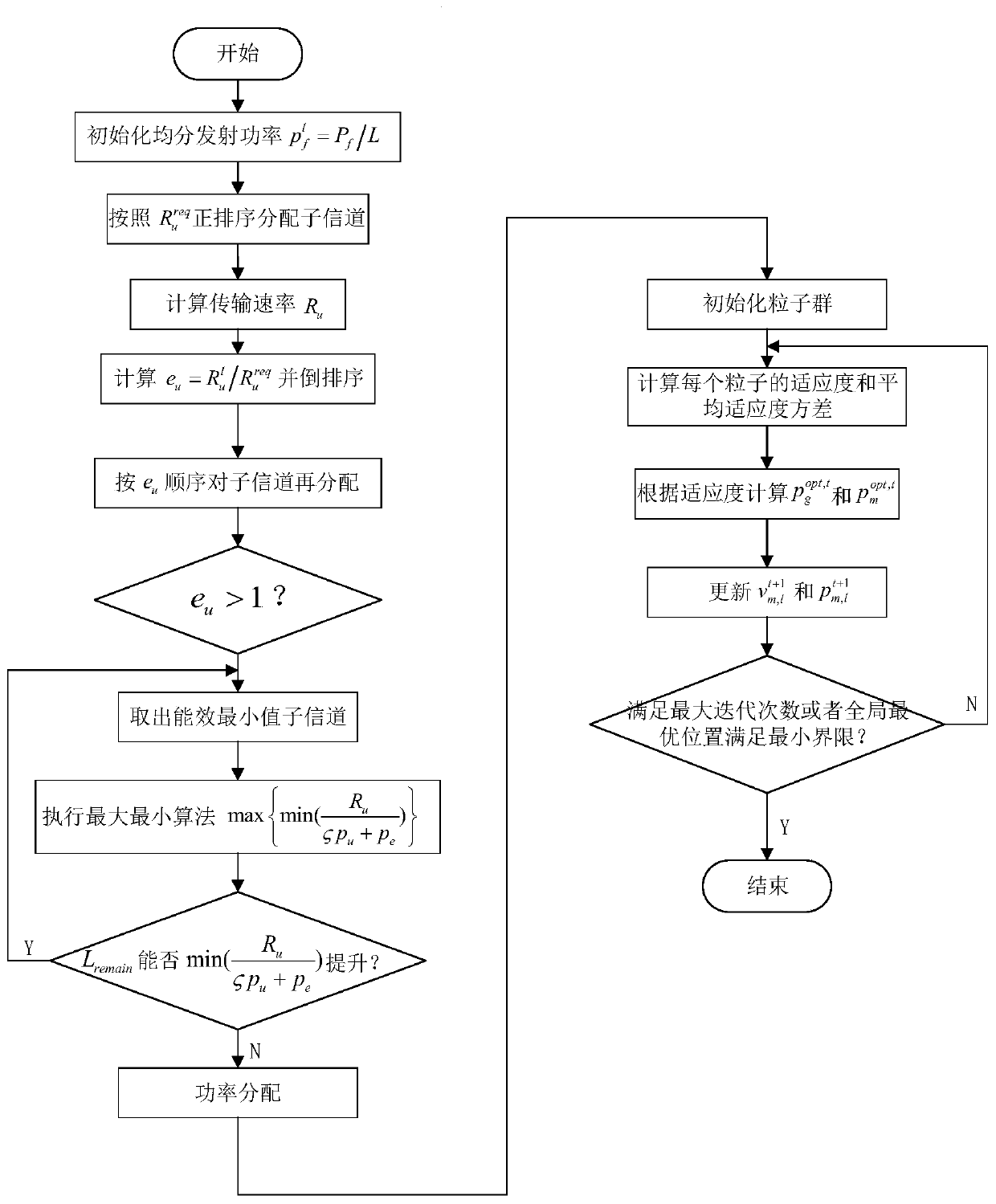Energy-efficient resource allocation method based on interference coordination for ultra-dense wireless networks
A wireless network and interference coordination technology, applied in the field of information communication, can solve problems such as interference
- Summary
- Abstract
- Description
- Claims
- Application Information
AI Technical Summary
Problems solved by technology
Method used
Image
Examples
Embodiment Construction
[0087] The invention designs an energy efficiency resource allocation algorithm based on interference coordination in an ultra-dense wireless network. The ultra-dense wireless network based on clustering is analyzed and presented, and the inter-cluster and intra-cluster interference coordination strategies are proposed: the graph theory coloring principle is used to coordinate inter-cluster interference and partial information interaction to coordinate intra-cluster interference. An energy-efficient resource allocation algorithm based on interference coordination in ultra-dense wireless networks is proposed, which jointly optimizes the subchannel and power of ultra-dense wireless networks. Firstly, the user quality experience function and the maximum-minimum algorithm are used to allocate the sub-channels; secondly, the improved particle swarm optimization algorithm is used to optimize the allocation of power. Among them, in order to prevent particle swarm optimization from fa...
PUM
 Login to View More
Login to View More Abstract
Description
Claims
Application Information
 Login to View More
Login to View More - R&D
- Intellectual Property
- Life Sciences
- Materials
- Tech Scout
- Unparalleled Data Quality
- Higher Quality Content
- 60% Fewer Hallucinations
Browse by: Latest US Patents, China's latest patents, Technical Efficacy Thesaurus, Application Domain, Technology Topic, Popular Technical Reports.
© 2025 PatSnap. All rights reserved.Legal|Privacy policy|Modern Slavery Act Transparency Statement|Sitemap|About US| Contact US: help@patsnap.com



